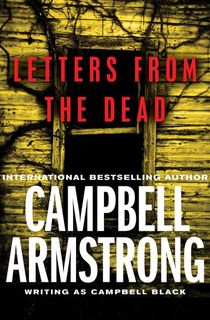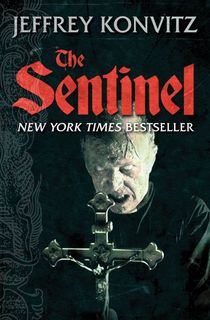Demons and possession, twin terrors that truly get under the reader’s skin. From The Exorcist to Come Closer: They are tales of losing control and the self.
Maybe it’s the fact that possession hits so close to home, an inherently personal and individual plight that can only be faced alone; maybe it’s how demonic possession lands front and center in that paranormal and supernatural space where many an individual denies believability.
When it comes to an invisible and often omnipotent enemy, it’s common to pretend it can’t happen. Yet that’s what a good demonic possession narrative anchored in horror does: It places readers in that pocket of believability, causing them to face the unknown. No wonder possession narratives are so popular
It gets to the point where it’s worth combing through the subgenre in search of fresh takes on possession.
We did just that. So here are some horror books with fresh takes that often blur the lines of the demonic possession narrative.

Incidents Around the House
Josh Malerman really changes things up in Incidents Around the House.
From its structure, a pseudo script/dual-pitched prose format, to its POV, a young child facing the unknown, the novel makes it clear that it’s bending the boundaries of both the possession and the haunted house.
Bela lives a somewhat secluded and lonely life with her father and mother but she’s had company, a “friend” that has been there for as long as she can remember. Bela calls her Other Mommy, and as the reader is introduced to this odd, troubling situation, it is revealed that Other Mommy has been getting “closer” recently, no longer relegated to her closet.
Incidents Around the House is an incredible literary feat where Malerman manages to tackle demonic possession without ever explicitly labeling it such; all the while, he achieves an empathetic and harrowingly vulnerable tale that rethinks the possibility of possession.

Letters from the Dead
Here’s one that could check off two boxes at once: rare and throwback. Letters from the Dead is one of those novels that endured a long stint of being out of print before being resurrected.
The setup is familiar: To escape their marriage problems, two women opt to flee to a cottage, bringing their kids along for the vacation. Upon arrival, things are in many ways “run down,” and the problems of their real lives take a backseat as their surroundings appear odd.
The kids, Lindy and Tommy, find a Ouija board, and soon receive so-called “letters from the dead.” The setup is so familiar among possession and haunting narratives that it practically lulls the reader into expectation.
But that’s when the novel's slow burn creeps in and offers an interesting take on how a demonic presence can make contact with and become attached to its human host(s).

The Merciless
Danielle Vega’s The Merciless series is a great example of the possession narrative folded into the frenetically dramatic world of high school.
In The Merciless, readers are introduced to a friend group that channels Mean Girls alongside the characters in Mona Awad’s Bunny. They are friends that face the demonic possession of their friend Brooklyn Stevens like any group of close-knit friends do: DIY style.
The Merciless raises the stakes and then continues to raise the stakes; it’s a book that manages to take something that is almost always dealt with in a very serious way and blends it with absurdity, dark comedy, and twist-heavy storytelling that one expects from page-turning thrillers.
The Merciless is at its best when it uses possession as social commentary, an area that isn’t explored as much.

The Last Days of Jack Sparks
The Last Days of Jack Sparks aims high with fourth-wall-breaking meta-horror and an incredibly unlikeable and unreliable protagonist, the eponymously named, Jack Sparks.
The premise is quite simple, the book readers hold in their hands is the project Jack Sparks, a journalist, was writing before he died. He’s become a subject of controversy for his mockery and attacks on the supernatural, particularly an exorcism he attended, or rather “crashed,” and filmed for uploading onto social media.
It’s all in the name of research, though, for the book he hopes to write, one on the supernatural, which should bring him back into the limelight.
The Last Days of Jack Sparks is most inventive at how it takes elements of found footage, in this case, Spark’s research and notes, and blends it together in an addictive narrative that reads like someone’s trainwreck manifesto.
You can tell Jason Arnopp had a blast writing this book. Sometimes the book and the act of reading is in and of itself a form of possession.

The Sentinel
Sometimes the most refreshing rendition of the possession narrative can be found in a deep dive into some of those lesser-known classics.
One that might fit perfect in this category is Jeffrey Knovitz’s 1977 horror novel, The Sentinel. A young model moves into a brownstone in New York City. She’s ready for that limelight era of her life, full of high-caliber gigs and parties.
Yet soon she discovers something odd, a neighbor who sits at a window, staring out. A voyeur, sure, but there’s something else, he takes on different guises, often seemingly evil.
The Sentinel takes on shades of Roland Topor’s The Tenant by way of demonic possession in a classic yet still curiously fresh take on evil at a distance.

Build Your House Around My Body
Violet Kupersmith’s Build Your House Around My Body is a complex and captivating novel woven together by mystery, horror, and historical fiction.
Among its many narrative threads, there’s Winnie, a woman who moves to Vietnam to teach EFL, only to end up discovering more of herself and her past. There’s a heartfelt narrative involving childhood friends as they struggle to survive and end up facing something supernatural; there are characters from the war, characters that act as anchors, and characters that act as metaphors
The book is epic in every sense of the term, and in its totality offers an utterly unique tale of possession from the historical, multigenerational mode. The presence can exist across time and history itself, and it truly is built around the body and mind. Kupersmith’s novel will leave a lasting impression for so many reasons.
When it comes to how it unfolds the demonic possession trope, it’ll have readers completely second-guessing “demon,” “possession,” and if one needs the other in order to haunt our minds.
.png?w=3840)



